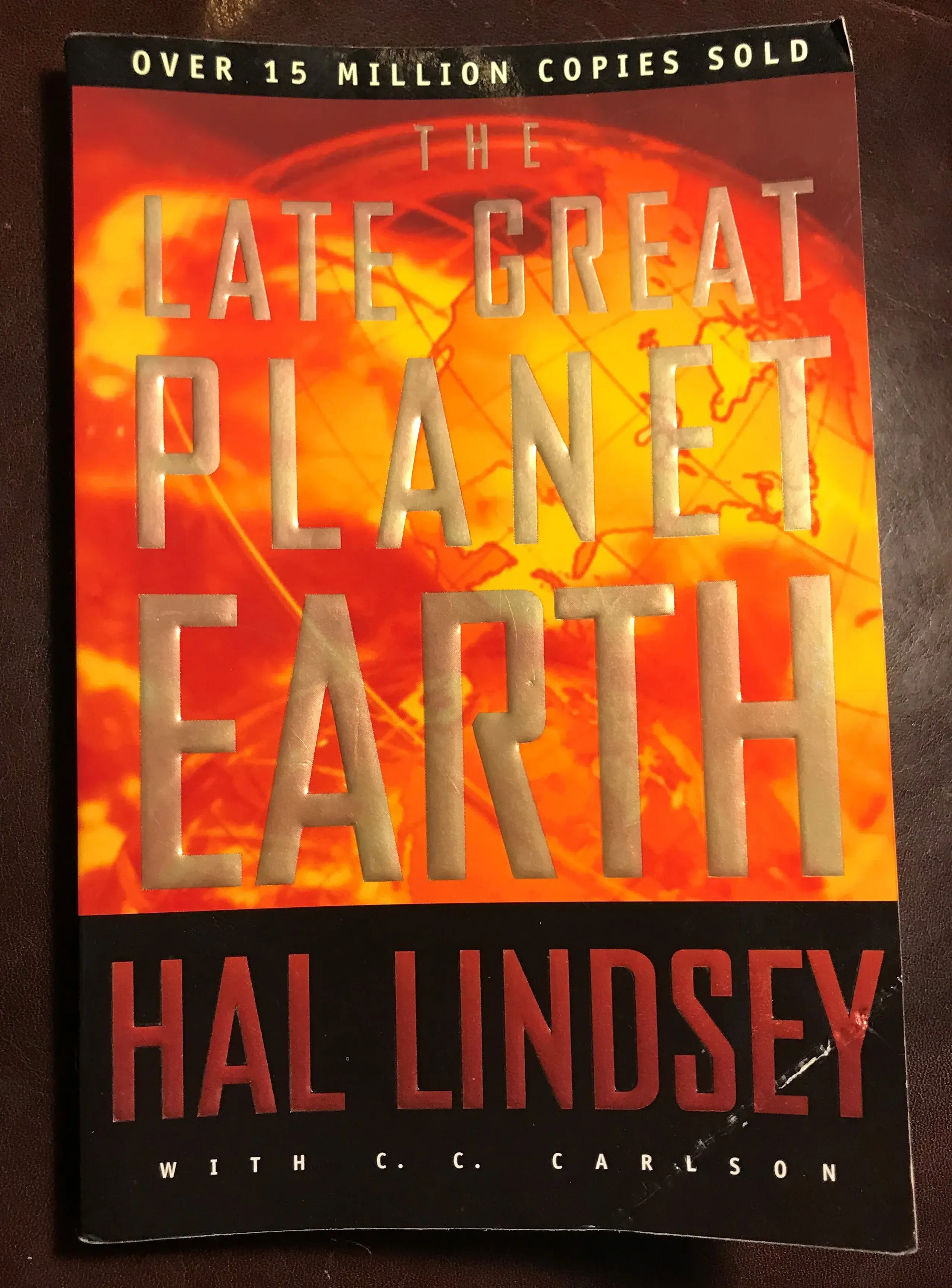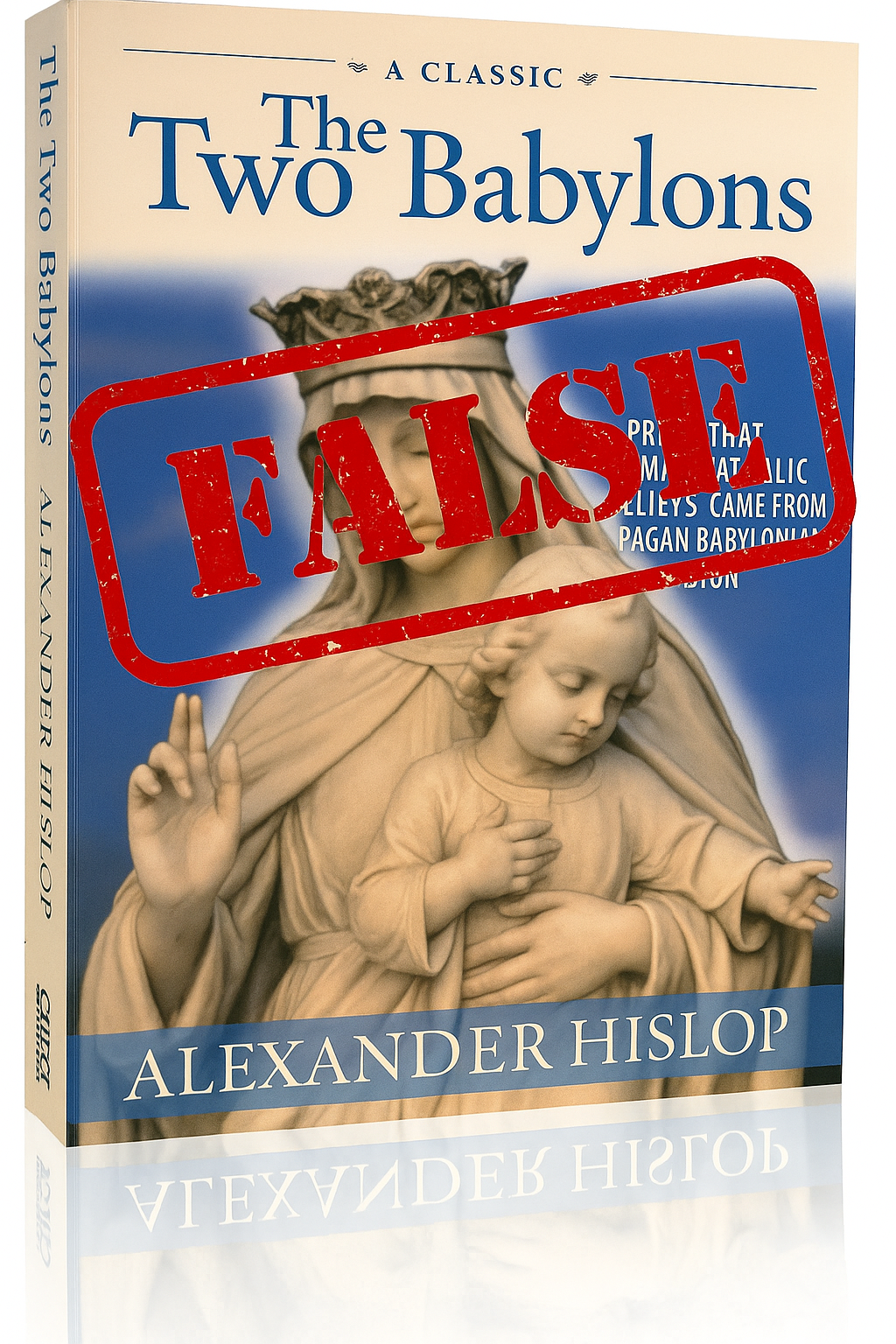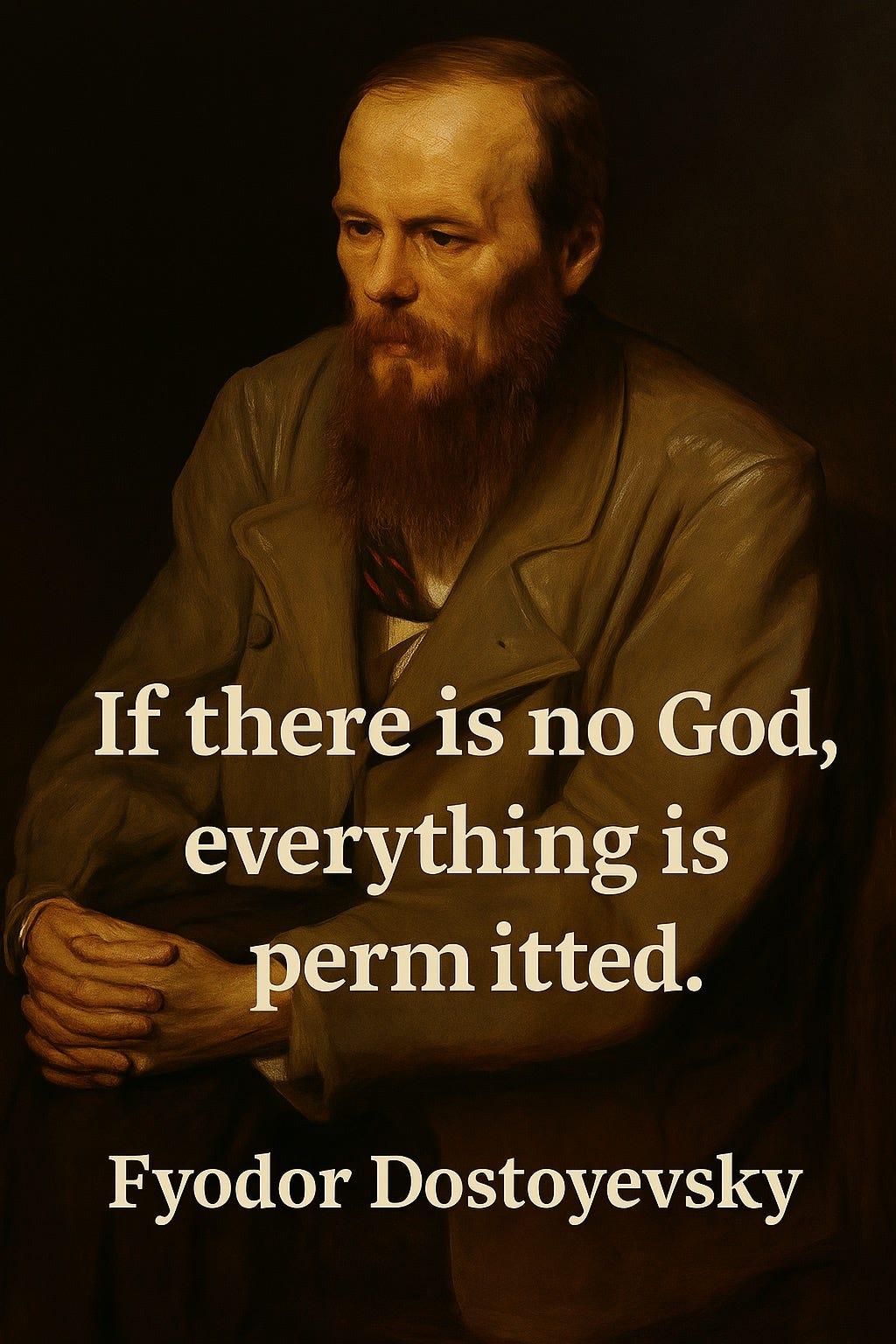Is it the end of the world as we know it?

September 28th 2015 will be a supermoon and a red moon at that.
I last wrote about these four "blood moons" way back in April last year when certain self-styled prophets John Hagee and Mark Blitz's "End Times" teaching gained some popularity (and subsequent book promotions). One thing that I predicted in my previous article was that if nothing else comes from all of this "end is nigh" nonsense, is that these "prophets" would indeed profit from their books – as has been shown to be true in which the "Four Blood Moons" book has been in the top 20 on the New York Times Best-seller List, and has also recently been turned into a docu-drama!
Other than these pastors reaping in loads of cash from books sales and movie rights via gullible people, there is a potentially worse consequence to all of this: to get on the NYT Best-sellers List it means that hundreds, if not thousands, of Christians have bought the book and have possibly accepted their doctrine of the blood moons. I've seen countless online discussions and Facebook posts concerning all of this, with many believers defending the doctrine vehemently, many of whom often have a very strong Zionist emphasis. Without the nation of Israel being something special, these predictions fail.
That is also another issue with these predictions: they are based on the assumption that the natural, national Jewish people are still God's chosen people who are separate from Gentile (non-Jewish) believers. That there are two "chosen people," two covenants with two different ways in which God deals and interacts with the people concerned. This leads to the Zionist theology that can be seen mainly in America, although it does come across sometimes here in the UK too, where Churches and Christian organisations are striving so hard to "Support Israel" with time, money and resources because they have also bought into this line of thinking. But it isn't so, and I'm not sure how it can be when the New Testament repeatedly speaks of Israel in spiritual terms linked with those who now believe in and follow Jesus.
I don't think it gets much clearer than this in the book of Galatians:
Galatians 3:6-9
Just as Abraham “believed God, and it was reckoned to him as righteousness,” so, you see, those who believe are the descendants of Abraham. And the scripture, foreseeing that God would justify the Gentiles by faith, declared the gospel beforehand to Abraham, saying, “All the Gentiles shall be blessed in you.” For this reason, those who believe are blessed with Abraham who believed.
I've already wrote extensively on this topic before, here and here, which you can read and comment on, if you want.
I believe wholeheartedly, that if you want to make a good and positive difference in this world, then our theology and doctrine has to be right. Because when it's wrong, it can lead to all sorts of wrong actions and atrocities in the name of God. Believing national Israel and geographical Israel is still something separate and special from the rest of us being one of those things.

Anyway, back to the topic at hand. It's been well over a year since Hagee et al, began these predictions, and so far nothing Earth-shattering has happened. Sure, there's been some natural disasters like the Chile earthquake/tsunami, and the Syrian civil war has escalated, plus ISIS in general always in the News – and while all these things are tragic and terrible, they are, sadly, nothing new. Though with blood moons and doomsday prophecies looming over us lately, they suddenly become almost "unique" events and fodder for the apocalypse fuel; a final "a-ha!" to point to and say "I told you so" in order to prove a point. Or worse still, to point to, and yet not do anything about it because you believe it's all part of God's plan to destroy the world, so why bother trying to change it?
As with most of these end-of-the-world predictions, they are often based on news headlines, random astronomical events, and some flimsy theology to hold it all together. Like Hagee proclaiming that his "mind reeled" when realising these Tetrads (the technical term for the four blood moons), all land on Jewish feast days on the Jewish calendar. Not to mention the other apparent and "significant" events that have happened to Israel before when Tetrads have fallen on Jewish calendar events.
At first glance this may sound somewhat convincing of it being something special, or at the very least, curiously coincidental. That is until you realise that the Jewish calendar is a lunar calendar. Yes, that's right – every feast and important event is timed specifically around the moon so of course feasts etc. will fall on full moons, whether they are blood red or not!
Or as Patheos writer, Benjamin L. Corey puts it: "looking to the sky to tell the future of Israel (basically, fortune telling for a nation state)."
So why all the fuss about "blood moons"?
The so-called blood moons has taken a grip on certain theology due to a handful of references in the Bible which talk about the full moon becoming "like blood" which I'll list below for reference:
Joel 2:31
The sun shall be turned to darkness, and the moon to blood, before the great and terrible day of the Lord comes.
Revelation 6:12
When he opened the sixth seal, I looked, and there came a great earthquake; the sun became black as sackcloth, the full moon became like blood...
Acts 2:20
The sun shall be turned to darkness
and the moon to blood,
before the coming of the Lord’s great and glorious day.
Matthew 24:29 is sometimes included in this type of thing, despite there not being a mention of a red moon, but that "the moon will not give its light" instead. Arguably, Matthew 24 and Revelation 6 are speaking about the same event here, as Jesus also says that "the sun will be darkened" too.
The list becomes a little shorter when you consider that the reference in Acts is actually a quote from the prophecy in Joel. So in actuality, this blood red moon is only really spoken of twice.
What's more interesting, and also a little bit of a death knell for this blood moon theology, is that in Acts 2 when Peter is quoting the prophecy in Joel, he doesn't say that this is some far-off future event that is irrelevant to those whom he is speaking, but that it was being fulfilled right there and then.
This is the problem when you chop bible verses out of context and then build doctrines on it; you have to "conveniently" ignore other parts of scripture, sometimes even parts of the same paragraph!
Let's break down Acts 2 a little and show you what I mean:
Acts 2 begins with Pentecost, where the disciples are all hiding in a room when suddenly the Holy Spirit comes down on them in a dramatic way like a "rush of a violent wind" which filled the house they were in, and then tongues of fire appears on their heads, then they begin speaking different languages — it all must have been quite strange and bewildering!
But not only for them, the people in the street below heard and saw and thought that the disciples were drunk! Then Peter gets up in front of the crowd and says "Indeed, these are not drunk, as you suppose, for it is only nine o’clock in the morning. No, this is what was spoken through the prophet Joel: In the last days it will be, God declares, that I will pour out my Spirit upon all flesh..."
Did you catch that? That event then, 2000 years ago, was what the prophet Joel was speaking about. Not only that, but attributing Joel's prophecy to the time of the disciples also means that 2000 years ago were "the last days" — not this month, nor ever again. That was, as Jesus spoke of it in Matt 24, "the end of the age"; the close of the old covenant and the start of the new!
Most modern "end times" theology accept this in part, but then say that the Last Days began back then, but still continue today. But the New Testament writers don't really allow for such an interpretation without some scriptural gymnastics!
The "Last Days" began at Pentecost 2000 years ago and continued until near the end of the first century. Quite a few of the New Testament books reference the last days or that the time is short, or "at hand", but it's when we get to 1 John 2:18 that we see something different: it was the "the last hour"!
Saying the last days could be an innumerable amount of days which span from Pentecost 2000 years ago and keep on going is one thing, but how do you make a single hour stretch for more than two millennia?
I'll leave that one with you to ponder on.
If you still believe all that Hagee and his ilk are churning out, then the only "world-changing" event that I predict will happen at the end of September is, is that of your world changing when you realise that you have been duped, yet again, by another end-time (false) prophet. One who may possibly "pull a Harold Camping" and go into hiding, or come out with some "miscalculation" on the timing of these world-shattering events before writing a new book to explain it all again.
Leave a comment Like Back to Top Seen 628 times Liked 0 times
Enjoying this content?
Support my work by becoming a patron on Patreon!
By joining, you help fund the time, research, and effort that goes into creating this content — and you’ll also get access to exclusive perks and updates.
Even a small amount per month makes a real difference. Thank you for your support!
Subscribe to Updates
If you enjoyed this, why not subscribe to free email updates and join over 853 subscribers today!
My new book is out now! Order today wherever you get books
Recent Posts
Luke J. Wilson | 5 days ago | Islam
You are not alone. Around the world, many Muslims — people who already believe in one God, pray, and seek to live righteously — are drawn to know more about Jesus (ʿĪsā in Arabic). Some have heard He is more than a prophet. Some have sensed His presence in a dream or vision. And some simply long to know God more deeply, personally, and truly. So what does it mean to become a Christian? And how can you take that step? This guide is for you. 1. What Christians Believe About God and Jesus ➤ One God, Eternal and Good Christians believe in one God — the same Creator known to Abraham, Moses, and the prophets. But we also believe God is more personal and relational than many realise. In His love, He has revealed Himself as Father, Son (Jesus), and Holy Spirit — not three gods, but one God in three persons. ➤ Jesus Is More Than a Prophet Muslims honour Jesus as a great prophet, born of the virgin Mary. Christians also affirm this — but go further. The Bible teaches that Jesus is the Word of God (Kalimat Allāh), who became flesh to live among us. He performed miracles, healed the sick, raised the dead — and lived without sin.Jesus came not just to teach but to save — to bring us back to God by bearing our sins and rising again in victory over death. 2. Why Do We Need Saving? ➤ The Problem: Sin All people — no matter their religion — struggle with sin. We lie, get angry, feel jealous, act selfishly, or fail to love God fully. The Bible says: “All have sinned and fall short of the glory of God.” (Romans 3:23) Sin separates us from God. And no matter how many good deeds we do, we can never make ourselves perfect or holy before Him. ➤ The Solution: Jesus Because God loves us, He did not leave us in our sin. He sent Jesus, His eternal Word, to live as one of us. Jesus died willingly, offering His life as a sacrifice for our sins, then rose again on the third day. “But God proves his love for us in that while we still were sinners Christ died for us.” (Romans 5:8) 3. How Do I Become a Christian? Becoming a Christian is not about joining a Western religion. It’s about entering a relationship with God through faith in Jesus Christ. Here is what the Bible says: ✝️ 1. Believe in Jesus Believe that Jesus is the Son of God, that He died for your sins, and that He rose again. “If you confess with your lips that Jesus is Lord and believe in your heart that God raised him from the dead, you will be saved.” (Romans 10:9) 💔 2. Repent of Your Sins Turn away from sin and ask God to forgive you. This is called repentance. It means being truly sorry and choosing a new way. “Repent therefore, and turn to God so that your sins may be wiped out.” (Acts 3:19) 💧 3. Be Baptised Jesus commands His followers to be baptised in water as a sign of their new life. Baptism represents washing away your old life and rising into a new one with Jesus. “Repent and be baptised every one of you in the name of Jesus Christ so that your sins may be forgiven.” (Acts 2:38) 🕊️ 4. Receive the Holy Spirit When you believe in Jesus, God gives you the Holy Spirit to live within you, guiding you, comforting you, and helping you follow His will. “You received the Spirit of adoption, by whom we cry, ‘Abba! Father!’” (Romans 8:15) 🧎 5. Begin a New Life As a Christian, you are born again — spiritually renewed. You begin to grow in faith, love, and holiness. You read the Bible, pray, fast, and gather with other believers. Your life is no longer your own; you now live for God. 4. What Does a Christian Life Look Like? Jesus said: “If anyone wants to become my followers, let them deny themselves and take up their cross and follow me.” (Matthew 16:24) This means: Loving God with all your heart Loving your neighbour — even your enemies Forgiving others ...
Luke J. Wilson | 05th May 2025 | Politics
When we think about David and Saul, we often focus on David’s rise to kingship or his battle with Goliath. But hidden within that story is a deep lesson for today’s generation about leadership, resistance, and the power of revolutionary love. At a recent youth training event (thanks to South West Youth Ministries), I was asked how I would present the story of David and Saul to a Christian teenage youth group. My mind turned to the politics of their relationship, and how David accepted Saul’s leadership, even when Saul had gone badly astray. David recognised that Saul was still God’s anointed king — placed there by God Himself — and that it was not David’s place to violently remove him. Gen-Z are more politically aware and engaged than previous generations, and are growing up in a world where politics, leadership, and social issues seem impossible to escape. We live in a world where political leaders — whether Trump, Putin, Starmer, or others — are often seen as examples of failed leadership. It’s easy to slip into bitterness, cynicism, or violent rhetoric. These kids are immersed in a culture of activism and outrage. As Christians, we’re called to care deeply about truth and justice and approach leadership differently from the world around us (Hosea 6:6; Isaiah 1:17; Micah 6:8). The story of David and Saul offers pertinent lessons for our modern lives. Respect Without Endorsement David’s respect for Saul was not blind loyalty. He did not agree with Saul’s actions, nor did he ignore Saul’s evil. David fled from Saul’s violence; he challenged Saul’s paranoia; he even cut the corner of Saul’s robe to prove he had the chance to kill him but chose not to. Yet throughout, David refused to take matters into his own hands by force. Why? Because David understood that even flawed authority ultimately rested in God’s hands, he trusted that God would remove Saul at the right time. This is echoed later in the New Testament when Paul writes in Romans 13 that “there is no authority except from God, and those authorities that exist have been instituted by God”, something even Jesus reminded Pilate of during his trial (John 19:10–11). In other words, even flawed leadership can be part of God’s bigger plan, whether for blessing or discipline. Even when leaders go bad, our call as believers is to maintain integrity, respect the position, and resist evil through righteousness — not rebellion. David and Saul: A Lesson in Respect and Restraint Saul was Israel’s first king — anointed by God but later corrupted by pride, fear, and violence. David, chosen to succeed him, spent years running for his life from Saul’s jealous rage. One day, David found Saul alone and vulnerable in a cave. His men urged him to strike Saul down and end the conflict. But David refused: “I will not raise my hand against my lord; for he is the Lord’s anointed.” (1 Samuel 24:10) Instead of killing Saul, David cut off a piece of his robe to prove he could have harmed him, but didn’t. In doing so, he demonstrated a real form of nonviolent resistance. He stood firm against Saul’s injustice without resorting to injustice himself, and acted in a way that could try to humble Saul instead. Peacemaking Is Not Passivity There is a modern misconception that peacemaking means doing nothing and just letting injustice roll all over us. But true biblical peacemaking is not passive; it actively resists evil without becoming evil. Interestingly, David’s actions toward Saul also foreshadow the type of nonviolent resistance Jesus later taught. When Jesus commanded His followers to turn the other cheek, go the extra mile, and love their enemies, he was not calling for passive submission but offering what scholar Walter Wink describes as a “third way” — a bold, peaceful form of resistance that uses what he calls “moral jiu-jitsu” to expose injustice without resorting to violenc...
Luke J. Wilson | 21st April 2025 | Easter
Over the years, I’ve encountered many Christians who’ve quoted from Alexander Hislop’s The Two Babylons as if it were a solid historical resource. The book claims that the Roman Catholic Church is not truly Christian but rather a continuation of ancient Babylonian religion. It’s self-assured and sweeping, and for many people, it seems to explain everything, from Marian devotion to Lent and Easter, to Christmas, as rooted in paganism. But is it accurate? In short: no, it really isn’t. Hislop’s work is a classic example of 19th-century pseudohistory — a polemical piece, written to prove a point, not to explore any historical truth. Flawed Methods and Wild Claims Hislop argues that most Catholic practices — from the Mass and clerical robes to festivals like Christmas and Easter — were somehow borrowed from Babylonian religion. The problem being that Hislop doesn’t rely on primary sources or credible historical data. Instead, he draws connections based on word similarities (like Easter and Ishtar) or visual resemblances (like Mary and child compared with mother-goddess statues from ancient cultures). But phonetic resemblance isn’t evidence, and neither is visual similarity. For example, if I say “sun” and “son” in English, they may sound alike, but they aren’t the same thing. That’s the level of reasoning at work in much of The Two Babylons. Hislop often lumps together completely different ancient figures — Isis, Semiramis, Ishtar, Aphrodite — as if they were all just variations of the same deity. He then tries to say Mary is just the Christian version of this pagan goddess figure. But there’s no credible evidence for that at all. Mary is understood through the lens of Scripture and Christian theology, not through pagan myth. The earliest depictions of Mary and the Christ-child date back to the second century and do not resemble any of the pagan idols. But, again, the common accusations are based on superficial similarities of a woman nursing a child. That’s going to look the same no matter who or what does that! Oldest depiction of Mary. Dura-Europos Church, Syria, 2nd century What About Lent and Tammuz? One of Hislop’s more popular claims is that Lent comes from a Babylonian mourning ritual for the god Tammuz, mentioned in Ezekiel 8:14. He argues that early Christians borrowed the 40-day mourning period and just rebranded it. But this doesn’t line up with the evidence. Lent developed as a time of fasting and repentance leading up to Easter — especially for new believers preparing for baptism. The number forty comes from Scripture: Jesus’ forty days in the wilderness, Moses’ fast on Sinai, and Elijah’s journey to Horeb. Church Fathers like Irenaeus and Athanasius saw it as a time for self-denial and spiritual renewal — not mourning a pagan god. Yes, there are pagan festivals that involve seasonal death and rebirth stories. But similarity does not mean origin. If that logic held, then even Jesus’ resurrection would be suspect because pagan cultures also told resurrection-like stories. Yet the gospel stands apart — not because of myth but because of history and revelation. Why Hislop’s Work Persists Even though The Two Babylons is poor scholarship, it’s unfortunately had a long shelf life. That’s partly because it appeals to a certain kind of suspicion. If you’re already sceptical about the Catholic Church, Hislop offers an easy explanation: “It’s all pagan!”. But history isn’t ever that simple. And theology — especially the theology handed down through the ages by the faithful— isn’t built on conspiracy and apparent obscure connections, but on Christ and the truth of the Scriptures. Interestingly, even Ralph Woodrow, a minister who once wrote a book defending Hislop’s ideas, later retracted his views after digging deeper into the evidence. He eventually wrote a book called The Babylon Connect...
Darwin to Jesus | 16th April 2025 | Atheism
Guest post by Darwin to Jesus Dostoevsky famously said, “If there is no God, then everything is permitted.” For years, as an atheist, I couldn’t understand what he meant, but now I do… Here’s a simple analogy that shows why only theism can make sense of morality: Imagine you just got hired at a company. You show up, set up your desk, and decide to use two large monitors. No big deal, right? But then some random guy walks up to you and says: “Hey, you’re not allowed to do that.” You ask, “What do you mean?” They say, “You’re not permitted* to use monitors that big.” In this situation, the correct response would be: “Says who?” We’ll now explore the different kinds of answers you might hear — each one representing a popular moral theory without God — and why none of them actually work. Subjective Morality The random guy says, “Well, I personally just happen to not like big monitors. I find them annoying.” Notice that’s not a reason for you to change your setup. Their personal preferences don’t impose obligations on you. This is what subjective morality looks like. It reduces morality to private taste. If this were the answer, you’d be correct to ignore this person and get back to work — big monitors are still permitted. Cultural Relativism Instead, they say, “It’s not just me — most people here don’t use big monitors. It’s not our culture.” That’s cultural relativism: right and wrong are just social customs, what is normal behavior. But notice customs aren’t obligations. If the culture were different, the moral rule would be different, which means it isn’t really moral at all. You might not fit in. You might not be liked. But you’re still permitted to use big monitors. Emotivism Here after being asked “says who?” the person just blurts out, “Boo, big monitors!” You reply, “Hurrah, big monitors!” That’s the entire conversation. This is emotivism. On this moral theory when we talk about right and wrong we’re actually just expressing our personal feelings towards actions, I boo rape, you hurrah rape. But shouting “boo!” at someone doesn’t create real obligations. You’re still permitted to use large monitors. Utilitarianism Here, the person says, “Your big monitors lower the overall productivity of the office. You’re not permitted to use them because they lead to worse consequences.” This is utilitarianism: morality is based on producing the greatest happiness for the greatest number. But even if that’s true — so what? Who says you’re obligated to maximize group productivity? And what if your monitors actually help you work better? Utilitarianism might tell you what leads to better outcomes, but it doesn’t tell you why you’re morally obligated to follow that path — especially if it comes at your own expense. You’re still permitted to use large monitors. Virtue Ethics Here they say, “Using big monitors just doesn’t reflect the virtues we admire here — simplicity, humility, restraint.” This is virtue ethics. Morality is about becoming the right kind of person. But who defines those virtues? And why are you obligated to follow them? What if your idea of a virtuous worker includes productivity and confidence? Without a transcendent standard, virtues are just cultural preferences dressed up in moral language. If you don’t care about virtue or their arbitrary standards, then you have no obligation. You’re still permitted to use large monitors. Atheist Moral Realism But what if they say, “Listen, there’s a rule. It’s always been here. It says you can’t use monitors that large.” You ask, “Who made the rule?” They say, “No one.” You ask, “Who owns this company?” They say, “No one owns it. The company just exists.” You look around and ask, “Where is the rule?” They say, “You won’t find it w...














